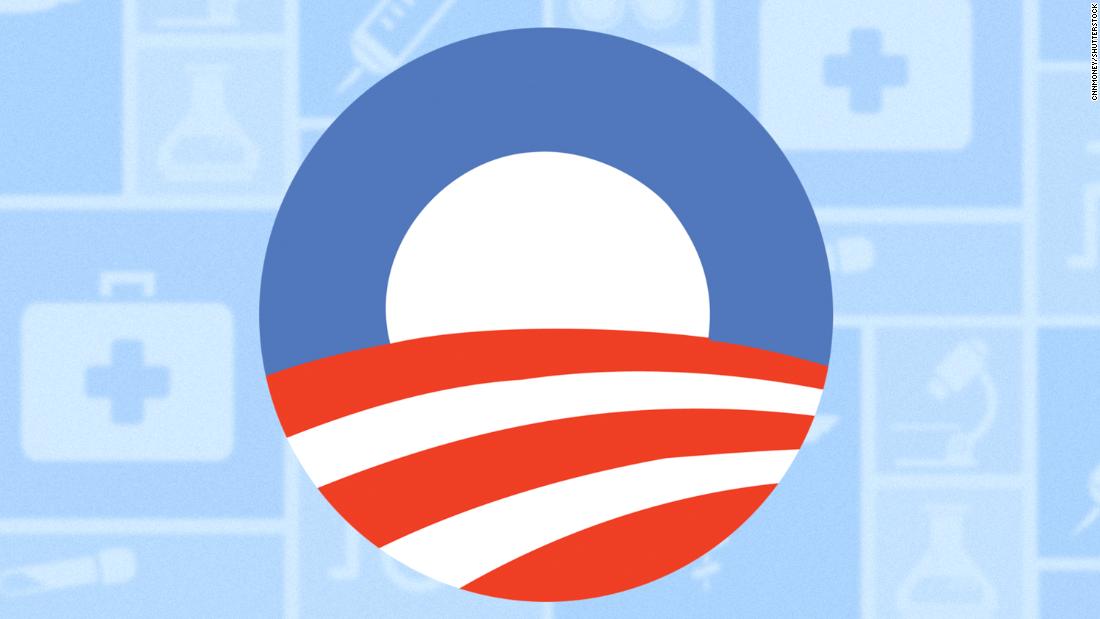
Oral arguments are scheduled for November 10 in a case that could overturn part or even all of the landmark health reform law. The justices, including newly sworn-in Amy Coney Barrett, are expected to release their opinion in the first half of 2021.
More than 10 million Americans get their coverage through the Obamacare exchanges. People should enroll for next year if they need health insurance, experts say.
"They should not let the fact that this is coming before the Supreme Court in any way dissuade them," said Michele Bratcher Goodwin, director of the Center for Biotechnology and Global Health Policy at the University of California, Irvine, noting that opportunities for enrollment after the deadline are very limited.
The court challenge, brought after congressional Republicans failed to deliver on President Donald Trump's promised repeal of the landmark 2010 law, is the most serious threat to Obamacare in years. A coalition of Republican state attorneys general led by Texas and joined by the Trump administration are arguing that the individual mandate is unconstitutional because Congress reduced the penalty for not having health insurance to zero as part of the 2017 Republican tax cuts -- and that, as a result, the entire law must fall.
Because the original lawsuit was brought by the Republican-led states, the case will continue even if former Vice President Joe Biden wins the White House.
A group of Democratic attorneys general led by California and the Democratic-led House of Representatives are defending the law.
What happens to coverage
The justices could rule in a variety of ways so it's unclear what, if anything, will change in the law -- or in coverage -- next year.
Even if they find that the mandate is unconstitutional, they could uphold all or parts of the remaining law, said Jonathan Adler, a law professor at Case Western Reserve University and longtime critic of the Affordable Care Act. Depending on the ruling, the coverage then could continue in 2021 as it did before.
It is also possible the justices could invalidate some or all of the law but order that the ruling not take immediate effect, which could leave coverage in place for the rest of 2021 -- though the court has moved away from that practice, said Nicholas Bagley, a law professor at the University of Michigan.
However, a court ruling could jeopardize Americans' coverage in this way: If the justices take down the entire law, the federal subsidies that most people need to afford their plans could stop abruptly, Bagley said. So even though their health insurance policies would remain in place for the year, many people may have to drop their coverage because of high monthly premiums.
"The effects would likely be pretty quick, if not immediate," he said.
Exchanges are doing better than ever
All this comes as the Affordable Care Act exchanges have stabilized. Coverage has gotten a little cheaper, and more insurers are participating in the market.
And it comes at a time when more Americans may turn to the exchanges after losing work-based health insurance amid pandemic-fueled layoffs.
The average premium for the benchmark plan will drop by 2% next year in the states using the federal exchange, the third year in a row of declines. Prices have dropped a total of 8% since 2018.
Most consumers, however, don't feel the annual premium fluctuations on the exchanges. Some 88% of enrollees on Healthcare.gov receive federal subsidies that reduce their monthly cost to less than 10% of their income.
For next year, an individual earning less than $51,040 and a family of four making less than $104,800 are eligible for assistance.
Also, many consumers will have a greater choice of plans. Some 22 more issuers will offer plans next year, and when considering states that are also participating in the federal exchange this year, that brings the total to 181.
The share of counties with only one participating insurer will drop to 9% next year, down from 50% in 2018.
Open enrollment runs through December 15 for the 36 states using their federal exchange, Healthcare.gov. Some states that operate their own exchanges, including New York, Nevada and Washington, have longer periods that stretch into January.
"open" - Google News
November 01, 2020 at 08:03PM
https://ift.tt/2Gh55Dg
Supreme Court threat looms over Obamacare open enrollment - CNN
"open" - Google News
https://ift.tt/3bYShMr
https://ift.tt/3d2SYUY
Bagikan Berita Ini














0 Response to "Supreme Court threat looms over Obamacare open enrollment - CNN"
Post a Comment